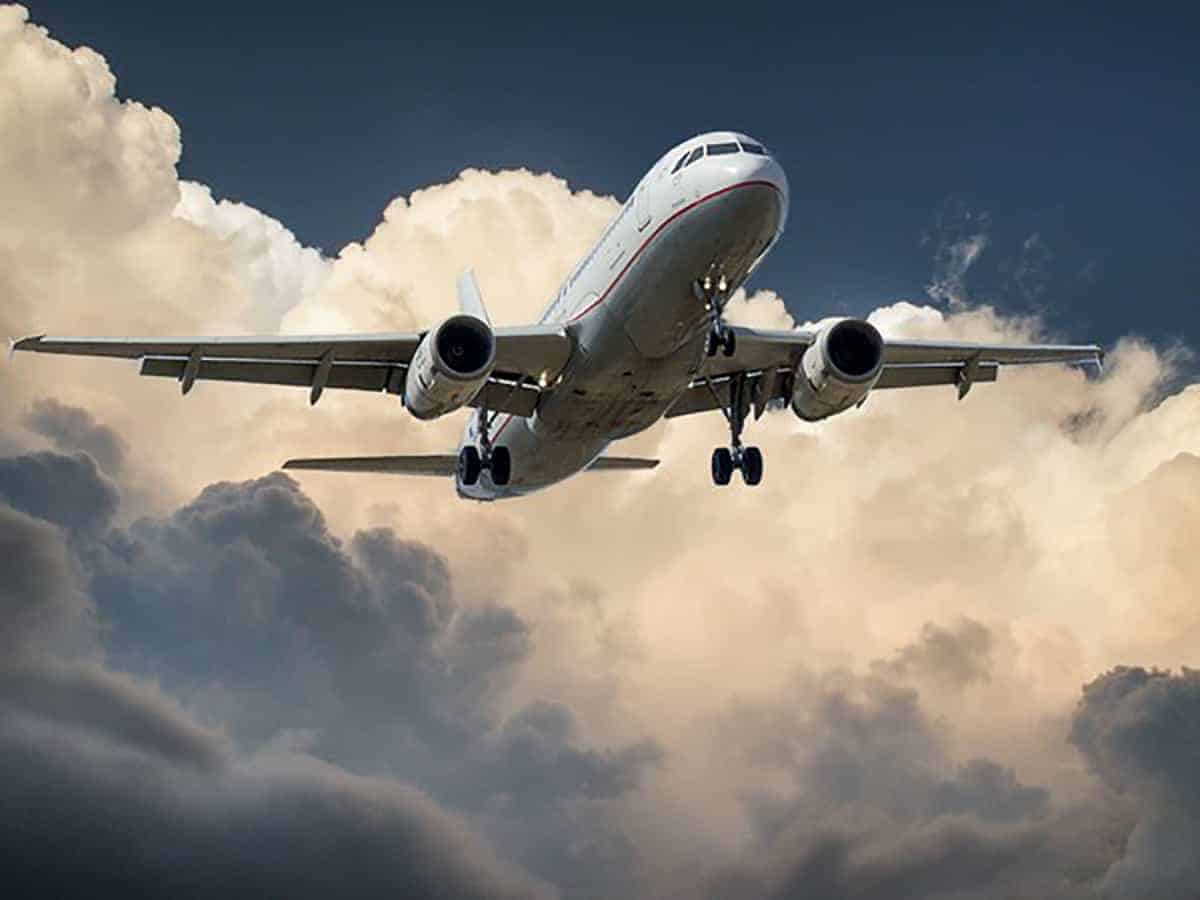Hyderabad: A small, elite minority of frequent flyers dominate air travel in most countries with high aviation emissions, states a report by a UK-based climate action group, Possible.
The report, which takes data from countries with the highest aviation emissions, shows a recurring pattern among the countries- a small group takes a large proportion of flights, while many people do not fly at all.
In the UK, for example, 70% of the flights are made by a wealthy population of 15%, 22% of Canada’s population takes 73% of flights, 12% of the people in the US take 66% of all flights, 5% of households in China take 40% of flights and 1% of India’s households takes 45% of the total number of flights.
A study by The Guardian also found out that 1% of the world’s entire population, dubbed as “super emitters”, caused half of global aviation carbon emissions in 2018.
In the UK, there have been campaigns for a frequent flyer levy, a progressive tax that increases the more one flies. Possible is one of the organizations and voices calling out for this legislature.
Aleatha Washington, campaign manager at Possible states, “This report shows the same pattern of inequality around the world – a small minority of frequent flyers takes an unfair share of the flights.”
“While the poorest communities are already suffering the impacts of a warming climate, the benefits of high-carbon lifestyles are enjoyed only by the few. A lot of people travel. But only the privileged few fly often. If left unchecked, emissions from polluting industries like flying threaten to crash the climate,” she said.
She opines that a progressive tax is essential to make flying frequently the luxury habit that it is.
Many from the aviation sector, however, questioned the efficiency of the tax.
A UK Treasury spokesman told BBC News that there were many drawbacks to a frequent flyer levy. These include that it would be complex to administer, could pose data processing and privacy concerns, could be difficult to impose where passengers hold multiple passports and could be a challenge for those who have an essential need to fly frequently.
Michael Gill, executive director at the International Air Transport Association, which represents the world’s airlines, was quoted by The Guardian as saying, “Taxes have proved to be an ineffective way to tackle emissions. The focus instead should be on practical means to mitigate the CO2 impact of aviation, while still enabling people to fly for business and family reasons.”
Anxieties about government bailouts of airlines leading to aviation returning to its pre-COVID condition are rife among campaigners. Hence, the demand for the imposition of this tax has only grown louder.

